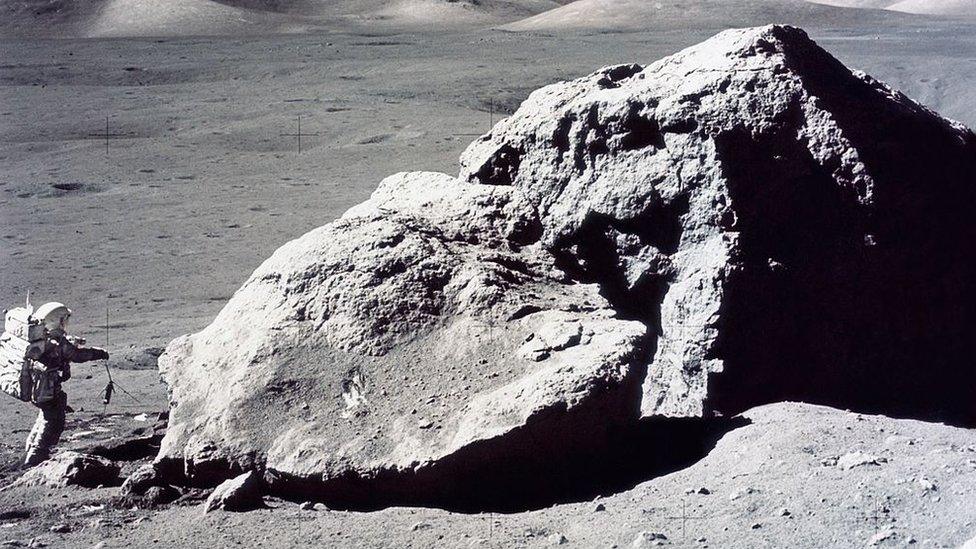Nasa is opening a 50-year-old sample of Moon rock!
- Published
- comments

The samples were collected back in 1972
Nasa scientists are preparing to open a tube packed with lunar rocks which has remained sealed for the last 50 years!
The space agency hopes the sample will allow researchers to learn more about the Moon and help with preparations to send people back to its surface in the next few years.
More samples will be collected from the Moon as part of Nasa's Artemis programme. This will also see the first woman and first person of colour land on the Moon no earlier than 2025.
It's hoped that by understanding how Moon rock was collected in earlier missions, it'll make it easier for the next team of astronauts who will visit the surface.
"Understanding the geologic history and evolution of the Moon samples at the Apollo landing sites will help us prepare for the types of samples that may be encountered during Artemis," said Thomas Zurbuchen who is the associate administrator of Nasa's Science Mission Directorate in Washington.
"Artemis aims to bring back cold and sealed samples from near the lunar South Pole. This is an exciting learning opportunity to understand the tools needed for collecting and transporting these samples, for analysing them, and for storing them on Earth for future generations of scientists."
It will take months for the scientists to fully open the sample
The Moon sample, which is being opened at Nasa's Johnson Space Centre in Houston, Texas was first collected by Apollo 17 astronauts Eugene Cernan and Harrison "Jack" Schmitt all the way back in December 1972.
It's part of two samples which were collected during the Apollo 17 mission in 14-inch tubes and was vacuum sealed before being transported back to Earth. It's been stored away in an atmosphere-controlled environment at Johnson Space Centre ever since.
It's hoped the study of the sample will help researchers prepare for future missions to the Moon
Another sample collected, which wasn't vacuum sealed, was opened in 2019. Scientists were able to see and study a mix of grains and smaller bits of rock known as rocklets.
Researchers at the centre have now turned their attention to the sealed sample of Moon rock, although the process of opening it isn't a quick one. In fact, it's believed it could take months!
The two astronauts collected Moon rock samples during their mission
On 11 February, the team began carefully removing the sample by first opening the outer protective tube it was kept in and capturing any gas they found inside. The next stage began more than a week later, when the scientists began piercing the inner container to slowly collect any lunar gases inside. These will be carefully extracted and studied further.
After the process of removing the gas is complete, the team will gently remove the soil and rocks from their container and this is likely to take place in the Spring.
- Published20 June
- Published7 March 2018
- Published6 January 2022
